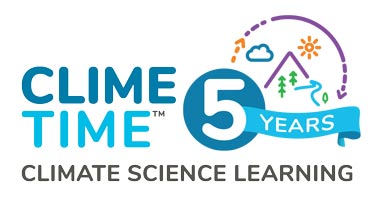Sustainability Ambassadors
The Community is a Living Textbook
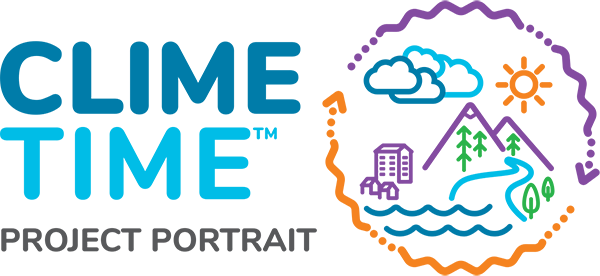
Overview
Over a decade ago, non-profit leader and storyteller Peter Donaldson felt morally called to educate “for” sustainability, not just “about” it. With the goal of aligning climate science, civics, and common core with the needs of local climate action plans, he founded Sustainability Ambassadors, a King County-based organization made up of students, teachers, community members, and green-job workforce leaders. Now the Director of Learning, Peter nurtures youth leadership, supports teachers in aligning academic rigor with community relevance, and fosters a community-driven approach to promoting sustainability.
Peter has seen that teachers and students are eager to get involved when it leads to agency, voice, and action for community problem solving. During the 2022-23 school year, Sustainability Ambassadors engaged 14 Teacher Fellows representing 7 schools districts, impacting a combined 4,173 students.
What We Did
Local, actionable curriculum
Sustainability Ambassadors has developed two innovative resources for teachers and student leaders: (1) The IP3 Strategy supporting the development of various project management skills; and (2) the “Local Living Textbook,” a series of youth-curated resources. These adaptable resources are designed to align classroom learning with city and county climate action plans. It can also focus on specific areas of policy, like stormwater plans, transportation plans, and green building plans. According to Peter, students explore the interdisciplinary connections across math, science and social studies in a way that makes learning come “alive,” a practice of learning that is “positive and solutions oriented.”
Collaboration with Teacher Fellows
Sustainability Ambassadors Teacher Fellows are given a wide range of supports, including professional development opportunities to explore resources and collaborate with other educators in the region. Teachers can receive clock hours and stipends for spending time planning across grade levels and content areas, and perspectives, as they design PBL pathways for students and create PD pathways for their teaching peers.
Power of Project-Based Learning (PBL)
PBL pedagogy merges Common Core State Standards (CCSS) with Next Generation Science Standards (NGSS) to create a “curriculum [that] is the community.” Through the support of professional development, teachers and students build PBL frameworks to share with Fellows and their teaching peers. Examples of these lesson plans range from a middle- and high-school level civics, science and human geography lesson, “Mapping My Watershed Address,”, to an 8th grade language arts lesson, “Nonfiction Reading on Our Shrinking Snowpack,”.
One exciting program outcome happened when four Teacher Fellows worked through their civics and science classes to advocate for the Bellevue School Board to adopt a Comprehensive Sustainability Policy, of which passed unanimously on April 20, 2023.
What We Learned
Building Relationships
As cities across the nation are adopting comprehensive climate action plans, students and teachers with Sustainability Ambassadors are working to find their own “champions” within local government. Whether it be a school board member, city council person, or a city planner, Peter and the educators he supports know that by building long-term, collaborative relationships with real-world players, school districts have a better chance in advocating for sustainability education, securing resources, and fostering partnerships between district and relevant community organizations. A Seattle-area high school educator and Sustainability Fellow noted, “program [participants] had the chance to access the policymakers themselves…like Vicki Raya [Climate Equity & Community Partnerships Program Manager with King County, and former Strategic Advisor with the City of Seattle Public Utilities] to answer those “hard questions” about climate science legislation.
Centering Student Success
Educators involved with Sustainability Ambassadors described that their favorite part of the work has been seeing students take the lessons beyond the classroom. Through the PBL model, students have the freedom and flexibility to explore their own interests. In a plastics pollution unit, students at a South King County High School took ownership of their work by connecting it directly to their communities. In her final assessment, a high school student advocated for her school district to provide menstruation products that have little or no plastics. Another student brought the work to their local mosque, advocating to stop the use of single-use water bottles during Ramadan. While the project began in the classroom, these students made it matter within the community.
Growing the Network
Educators voiced the importance of including and retaining Black, Indigenous, and People of Color (BIPOC) educators and students, as well as bringing in more speakers of color whose expertise is in workforce spaces. One teacher observed, “the most powerful voices and most strident on environmental justice come from young women of color,” whose communities are historically furthest from environmental justice.
Sustainability Ambassadors hope to see more teachers from different school districts across Washington take interest in the work, participate in the Climate Action Teacher Fellows Program, and begin to adopt the Impact Project Design process and the Local Living Textbook.
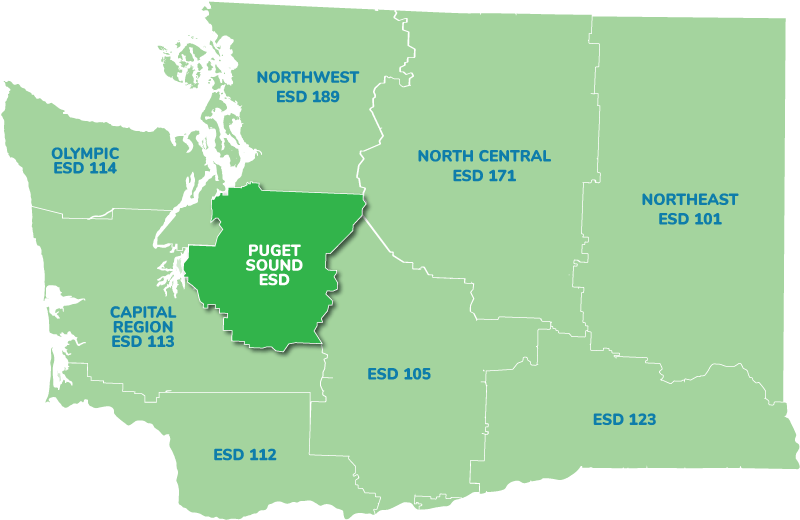
Project Reach
Students
Teachers & Coaches
Project Partners
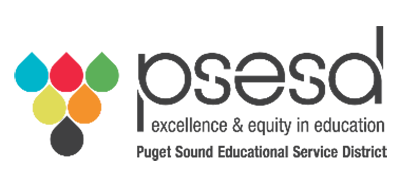
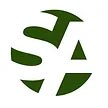
Contact
Peter Donaldson
Director of Learning
Sustainability Ambassadors
peter@sustainabilityambassadors.org
Cheryl Lydon
Science Program Manager
PSESD
clydon@psesd.org
